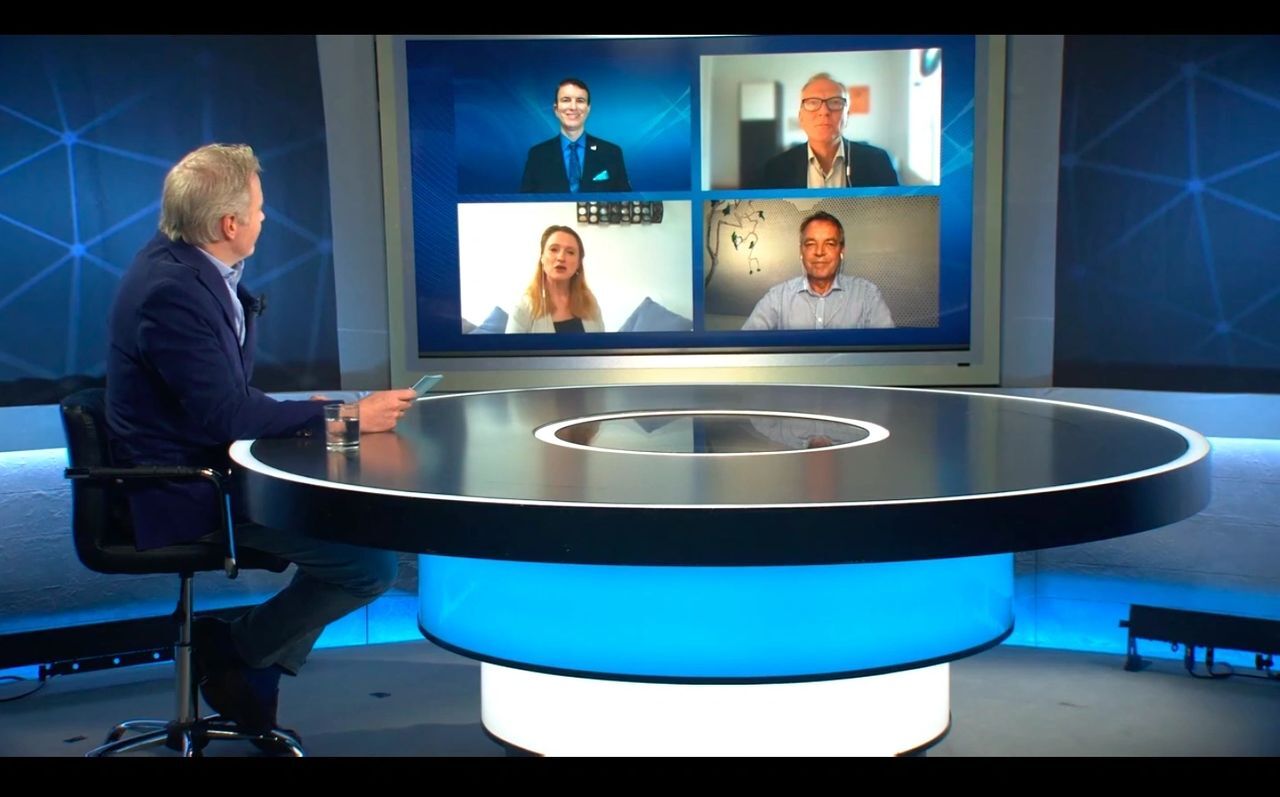
11 Aug INMARSAT HOSTS FLIGHTPLAN TO UNITE THE AVIATION INDUSTRY
Dominic Walters, who runs marketing communications and strategy at Inmarsat’s Aviation business unit, was the driving force behind the project team, a diverse group of experts at Inmarsat and external communications and production agencies.
As you’ll have seen, aviation has been hit hard by the effects of COVID-19 lockdowns. Our industry is no stranger to crisis, but none of them have cut off our ability to quickly come together and collaborate to find solutions in quite the same way. Over the last few months, I’d watched events being cancelled in other industries, with Mobile World Congress sounding the biggest alarm bell. Some cut their losses. Some held out as long as possible. So, when aviation’s main conferences were cancelled or postponed it was a huge shame but not a huge surprise.
We were already considering what role Inmarsat should be playing right now, and what action we should take to support our industry. That’s the main question every initiative should start with these days – how can we help? In our case, we’re in the business of connectivity. So, while aircraft are grounded around the world, we wanted to find a new way to connect people. For any marketer about to embark on a similar project, here are some recommendations to bear in mind.
First of all, don’t try to be a replacement for anything cancelled or postponed. This initiative was not about replacing the AIX aviation conference. Our established industry gatherings have a very special role and will continue to. We weren’t trying to replicate or better something – we looked at what was most needed right now, by the most badly affected players in the industry, and worked from there.
Remember that you should only do what your brand gives you the licence to do. Over the past few years, Inmarsat has adopted a strategy of disruption in its communications to establish itself in a fast-paced market. So, we have built a bit of a reputation for breaking the mould and introducing novelty. That’s why we were able to act as convener and attract the contributors we did. Don’t either overstep or underplay your licence, or you might miss the mark. In our case, by getting it right, we redefined what our role is in ourindustry.
Build your initiative with a view to being useful, nevercommercial. Now is not the time to sell. The success of FlightPlan was driven by a conscious decision not to give it a commercial agenda. This approach attracted bigger name contributors – organisations and individuals – and also gave the event a spirit of collaboration and purpose that was recognised by our audience. Above all, it gave the event anauthority and relevance that any whiff of sales intent would have totally undermined.
Linked to that point, you need to create something that istotally unbiased and therefore credible. We invited journalists and critics to take part, we didn’t restrict who could tune in, we didn’t limit access to competitors. We didn’t censor anyone, and we encouraged open debate. This was critical to its success.
All of that said, don’t lose sight of your own brand. In times like this, the default in B2B marketing is that budgets are reduced, and brand-building activities decrease. But a crisis is an amazing opportunity to redefine or reinforce a brand position, especially if your actions are bold and timely. Just approach this in the context of each of the points highlighted above.
Another thing we learned is – be positive! There’s enough doom and gloom out there already. You can’t force this onto people, but you can set an agenda which asks people to look forward, to be focused on solutions, resilience, and recovery, and you can select contributors that you know are the right people to take this perspective. Positivity begets positivity, and that’s a chain reaction you want people to see that your brand has triggered.
And now people are asking when will we do this again. So, I suppose my last point is this: at each stage in the process, keep close track of all the lessons you’ve learned, from big to small. You may just end up repeating the initiative!
- FlightPlan PR highlight stats:
- Six industry leading journalists contributed content to the event
- 69 international journalists registered to watch the event – including BBC, Wall Street Journal, Bloomberg, Business Insider, Daily Telegraaf Holland
- 260 pieces of media coverage
- Generating a total potential reach of 64.5m
- 22 countries reached with media coverage
- 92 per cent of coverage included quotes from Inmarsat spokespeople
- 94 per cent of coverage included key messages
- FlightPlan event stats:
- 7 hours 29 minutes of broadcast
- 2,200 pre-registrants (including over 100 airlines)
- Audience on the day = more than 3,000
- Average audience of 750 viewers throughout the day
- Average dwell time of 144 mins
- 107 virtual meetings through the networking page
- 142 questions/comments on the day (via the ‘Ask a Question’ function)
- 300+ unique views of ‘on-demand’ content since the launch
